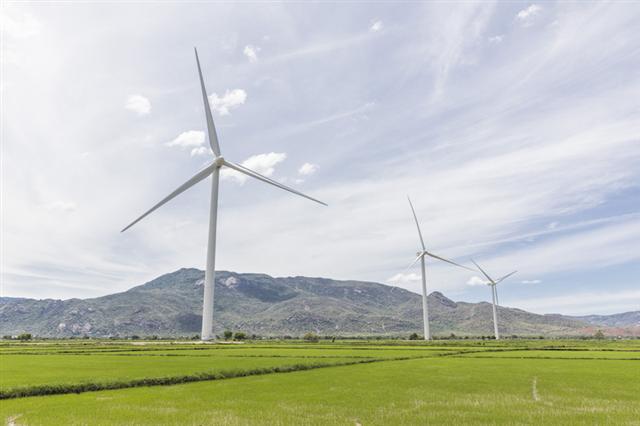Vietnam to generate 6,800MW of wind power by 2030
Vietnam to generate 6,800MW of wind power by 2030
Due to shortage of coal, Vietnam has to add more than 6,800MW of wind power into the national energy plan.
The Ministry of Industry and Trade (MoIT) has submitted to Prime Minister Nguyen Xuan Phuc the National Energy Development Strategic Plan to 2030 with Vision to 2045 which targets the generation of more than 6,800MW wind power in 2030.

|
The focus on wind power is explained by the shortage of coal and adverse climatic conditions.
In February, the Institute of Energy under the Ministry of Industry and Trade reviewed the adjusted Master Power Plan VII to ensure the balance of supply and demand of electricity in the 2021-2030 period.
Accordingly, the wind power capacity needs to be added to the plan until 2025, including more than 6,000MW in the base plan and 11,630MW in the high plan.
Meanwhile, the total capacity of the newly- modified wind power plan is 4,800MW. As such, more than 1,200MW is needed in the base plan and more than 6,800MW in the high plan.
Currently, the construction progress of coal-fired power stations under the adjusted Plan VII is one to two years behind the schedule. Coal-fired plant construction in the South is also suffering delay.
In 2014, Vietnam canceled the plan on the first-ever nuclear power plant which is expected to be built in Ninh Thuan province. The decision spoiled the country’s projections of power generation.
After calculating the supply and demand, the MoIT found that there was a possibility of electricity shortage, especially in the South.
Therefore, after consideration, the ministry decided to choose a high plan to add more than 6,800MW of wind power to the plan to ensure energy security.
The previously plan of wind power projects with combined capacity of 4,800 MW is expected to be completed by 2021, mainly in the Southwest and South-Central regions. Currently, only nine projects have been put into operation with a capacity of 350MW.
In addition, the ministry also received proposals to supplement the planning of 248 projects with a total capacity of 45,000MW from 20 provinces and cities, In particular, the largest scale comes from Ben Tre province with 23 projects with a total capacity of over 12,000MW.

























